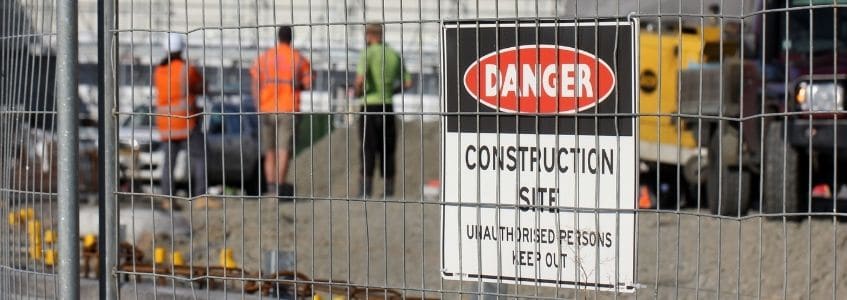In the complex world of industrial facilities, where the smooth functioning of heating systems is highly valued, boiler operators take center stage. Their role in maintaining and troubleshooting these intricate systems is nothing short of indispensable. As we explore the importance of safety compliance for boiler operators, it becomes evident that boiler operator's work goes far beyond mere technicalities; it's about safeguarding the core of industrial operations – consistent and efficient heat distribution.
Boiler operators are the unsung heroes behind the scenes, working diligently to ensure that the wheels of industry keep turning. They bear the responsibility of maintaining the boilers that produce the essential heat required for various industrial processes. But in this crucial task lies a host of challenges and risks that demand meticulous attention to safety compliance. Learn more about the multifaceted role of boiler operators, the potential hazards they face, and the critical need for adhering to safety regulations in their daily endeavors.
Understanding the Responsibilities of Boiler Operators
Boiler operators are the “guardians of heat” within industrial facilities, tasked with a set of responsibilities that are pivotal to the safe and efficient operation of boilers. Their responsibilities extend beyond maintaining heat; they are custodians of safety, reliability, and environmental sustainability within industrial settings
Operating and Monitoring Boilers
Boiler operators are responsible for the meticulous operation and monitoring of boilers. This includes starting up, shutting down, and regulating boiler systems to maintain optimal heat production. Their vigilance ensures that boilers operate within specified parameters, preventing overheating or system failures that could lead to catastrophic consequences.
Conducting Routine Maintenance
Routine maintenance is the lifeline of boiler systems. Operators are tasked with conducting inspections, cleaning, and making necessary adjustments to keep boilers in peak condition. This proactive approach not only prolongs the lifespan of the equipment but also reduces the risk of unexpected breakdowns, which can result in costly downtime.
Troubleshooting and Repairs
When issues arise, boiler operators step into the role of troubleshooters. They must diagnose problems, identify faulty components, and effect timely repairs to ensure uninterrupted heat production. Their swift and accurate response is critical in averting potential disasters and minimizing operational disruptions.
Boiler Safety Oversight
Boiler operators are the frontline defenders of safety in industrial facilities. They must adhere to strict safety protocols and guidelines to prevent accidents, such as boiler explosions or leaks, which could lead to injuries or even fatalities. Their constant vigilance and adherence to safety practices are paramount in maintaining a secure working environment.
Environmental Stewardship
In today's environmentally conscious world, boiler operators play a crucial role in emissions control. They need to ensure that boilers operate efficiently to minimize the release of harmful pollutants into the atmosphere. This aligns with global efforts to reduce the carbon footprint and protect the environment.
The Importance of Safety Precautions in Boiler Operations
Boiler operations, while essential for maintaining industrial processes, are not without their inherent risks. Safety is non-negotiable in boiler operations. The colossal energy contained within boilers demands an unwavering commitment to safety protocols. Even the slightest oversight can lead to catastrophic accidents, including explosions, fires, or hazardous gas leaks.
Boiler Operator Risks and Hazards
- Pressure-Related Dangers: Boilers operate under immense pressure, making them susceptible to explosions if safety valves fail or if pressure exceeds safe limits.
- Hot Surfaces: Boiler components can reach scorching temperatures, posing burn risks to operators if they come into contact with hot surfaces or steam.
- Chemical Exposure: The chemicals used in water treatment within boilers can be corrosive or toxic. Mishandling or leaks can lead to severe chemical burns or inhalation hazards.
- Gas Leaks: Boiler malfunctions can result in the release of harmful gasses like carbon monoxide. Inhalation of these gasses can be fatal.
- Fuel Combustion: Improper fuel combustion can lead to fires or explosions, especially in oil or gas-fired boilers.
Boiler Operator Safety Precautions
- Regular Inspections: Routine checks and inspections to identify potential issues before they escalate.
- Safety Training: Thorough training for operators on safety protocols, emergency procedures, and the proper use of personal protective equipment (PPE).
- Emergency Response: Clearly defined response procedures to address unexpected situations swiftly and effectively.
- Equipment Maintenance: Consistent maintenance and upkeep of boiler systems to prevent malfunctions.
- Gas Detection: Installation of gas detection systems to alert operators to potential leaks.
- Safety Valves: Ensuring safety valves are calibrated and functioning correctly to relieve excess pressure.
- PPE Usage: Mandating the use of appropriate PPE, including heat-resistant clothing, safety goggles, and respirators where necessary.
Industry Regulations and Compliance for Boiler Operators
Boiler operations are subject to stringent industry regulations and compliance standards to uphold safety, environmental responsibility, and operational efficiency. Organizations like ISNetworld® serve as invaluable partners in ensuring that boiler operators maintain the highest safety and compliance standards, fostering a culture of safety excellence in the boiler operation industry
Key Regulations for Boiler Operations
- OSHA Regulations: The Occupational Safety and Health Administration (OSHA) outlines safety standards for boiler operations in industrial facilities. These standards encompass various aspects, including boiler maintenance, inspection, and worker safety.
- ASME Boiler and Pressure Vessel Code: Developed by the American Society of Mechanical Engineers (ASME), this code sets the industry benchmark for the design, construction, and operation of boilers and pressure vessels. Compliance with ASME standards is essential to ensure the structural integrity and safety of boilers.
- Environmental Regulations: Boiler operators must adhere to environmental regulations governing emissions and pollution control. Compliance with these regulations helps mitigate the environmental impact of boiler operations.
- National Board Inspection Code (NBIC): The NBIC provides guidelines for the installation, inspection, and repair of boilers and pressure vessels. Compliance with the NBIC ensures that these critical components remain in safe working conditions.
Fostering Safety Compliance in Boiler Operations with ISNetworld®
ISNetworld® plays a pivotal role in promoting safety compliance and best practices within the boiler operation industry. As a global leader in contractor and supplier management, ISNetworld® connects hiring clients with contractors who meet rigorous safety and compliance standards. Here's how ISNetworld contributes to safety compliance in boiler operations:
- Comprehensive Compliance Verification: ISNetworld® evaluates contractors' adherence to industry-specific standards and regulatory requirements. Boiler operators seeking compliance partner with ISNetworld® to undergo comprehensive verification processes.
- Documentation and Record Keeping: ISNetworld® streamlines the documentation and record-keeping process, ensuring that all essential compliance documents, safety manuals, and certifications are up-to-date and easily accessible.
- Continuous Monitoring: ISNetworld® employs continuous monitoring to assess contractors' safety performance over time. This ongoing evaluation incentivizes boiler operators to maintain and improve their safety standards.
- Benchmarking and Best Practices: ISNetworld® facilitates benchmarking by allowing boiler operators to compare their safety performance with industry peers. Access to best practices and performance insights enables continuous safety enhancement.
Key Safety Features on Boilers
Boilers are intricate systems that rely on several key safety features to ensure the well-being of personnel and the efficient operation of the equipment. Boilers are equipped with an array of safety features that collectively ensure safe and efficient operation. These features are the backbone of boiler system reliability, protecting both personnel and equipment. Boiler operators must be well-versed in the function and maintenance of these safety components to uphold safety standards and prevent potential hazards.
- Pressure Relief Valves: Pressure relief valves are the guardians of boiler systems. These safety devices are designed to automatically release excess pressure if it reaches a critical point. By preventing over-pressurization, pressure relief valves safeguard the boiler from catastrophic failures that could result in explosions. Their role in maintaining safe pressure levels within the boiler is paramount.
- Water Level Controls: Maintaining the right water level inside the boiler is vital for safe and efficient operation. Water level controls continuously monitor and regulate the water level. Inadequate water levels can expose the heating surfaces, leading to overheating and potential damage. Conversely, excessive water levels can cause carryover, which may lead to water entering the steam system, potentially damaging equipment and affecting process efficiency.
- Flame Safeguards: Flame safeguards are integral for controlling the combustion process within the boiler. They monitor the flame's presence and stability. If a flameout or instability occurs, these safeguards shut down the boiler to prevent the release of unburned fuel or flammable gasses. This feature is crucial for averting fire hazards and ensuring efficient fuel utilization.
- Low-Water Cutoffs: Low-water cutoffs act as a fail-safe mechanism to prevent the boiler from operating when the water level falls below a safe threshold. Operating a boiler with insufficient water can lead to overheating and catastrophic failure. Low-water cutoffs serve as a protective barrier, shutting down the boiler to prevent damage and maintaining safe operating conditions.
- Combustion Air Control: Adequate oxygen supply is essential for efficient and safe combustion. Combustion air control systems regulate the airflow to maintain the correct oxygen-to-fuel ratio. This not only ensures optimal combustion but also prevents the formation of dangerous gasses, such as carbon monoxide. Additionally, these controls contribute to energy efficiency by optimizing fuel consumption.
- Safety Shutoff Valves: Safety shutoff valves are designed to isolate the boiler from its fuel source in case of emergencies or during maintenance. These valves provide a quick and reliable means to cut off the fuel supply, preventing uncontrolled combustion or fuel leakage.
- Temperature and Pressure Gauges: Temperature and pressure gauges are the eyes and ears of boiler operators. They provide real-time feedback on critical parameters. By monitoring these gauges, operators can detect anomalies early, allowing for timely adjustments or shutdowns to prevent dangerous conditions.
- Alarms and Interlocks: Modern boilers are equipped with sophisticated alarm and interlock systems. These systems trigger audible and visual alarms in response to abnormal conditions, such as high pressure, low water, or flame failure. Interlocks automatically shut down the boiler to prevent further operation until the issues are resolved, enhancing safety.
Ensuring Safety in Boiler Operations
Ensuring safety in boiler operations is the best way to prevent accidents, protect personnel, and maintain the longevity of your equipment. By following a few guidelines and promoting a strong safety culture, boiler operators can significantly reduce the risks associated with their work. Remember that safety should always be a collaborative effort, with all team members actively participating in maintaining a secure boiler operation environment.
- Proper Boiler Operation Training: One of the cornerstones of safety in boiler operations is ensuring that operators receive comprehensive training. Training should cover various aspects, including boiler operation, safety protocols, emergency procedures, and the handling of potential hazards. Well-trained operators are more adept at recognizing and responding to abnormal conditions, thereby minimizing risks.
- Regular Boiler Inspections: Regular inspections are the first line of defense in identifying and addressing potential issues. Boiler operators should conduct routine visual inspections of critical components such as pressure relief valves, water level controls, and safety shutoff valves. These inspections should be performed according to a predefined schedule to ensure early detection of problems.
- Maintenance Practices: Maintenance is the lifeblood of safe boiler operation. Establish a rigorous maintenance schedule that includes cleaning, lubricating, and inspecting various boiler components. Pay close attention to combustion systems, fuel lines, and safety devices. Keeping boilers in peak condition reduces the risk of malfunctions and accidents.
- Boiler Operation Emergency Preparedness: Every boiler operation should have well-defined emergency procedures in place. Ensure that all personnel are familiar with these procedures, which should include steps to follow in case of fires, gas leaks, or other critical incidents. Regularly conduct drills and simulations to reinforce
- Continuous Job Education & Training: Boiler technology is continually evolving, and so are safety standards. Encourage ongoing education and training for boiler operators to keep them updated on the latest safety practices and technological advancements. Participation in industry seminars, workshops, and certifications can further enhance their knowledge and skills.
- Jobsite Reporting and Communication: Establish clear channels for reporting safety concerns or incidents. Encourage open communication among all team members. Workers should feel comfortable reporting any anomalies or unsafe conditions without fear of reprisal. Timely reporting can prevent minor issues from escalating into major problems.
- Proper Use of Personal Protective Equipment (PPE): Ensure that all personnel involved in boiler operations have access to and wear the appropriate PPE. This may include safety goggles, gloves, hearing protection, and flame-resistant clothing. PPE acts as an additional layer of defense in case of unexpected events.
The Benefits of Safety Compliance for Boiler Operators
Maintaining safety compliance isn't just a regulatory requirement; it offers a multitude of benefits that positively impact both boiler operators and the facilities they serve. The foremost advantage of safety compliance is the protection of human lives. Compliance measures such as regular inspections, safety protocols, and the use of proper safety equipment contribute to a safer working environment. This, in turn, reduces the likelihood of accidents, injuries, and fatalities among boiler operators and facility personnel. Additional benefits of safety compliance for boiler operators include:
- Reduced Downtime: Boiler downtime due to accidents or equipment failures can be costly and disruptive. Safety compliance measures help identify potential issues early, allowing for timely repairs and maintenance. As a result, the risk of unexpected shutdowns and production losses is significantly diminished.
- Improved Efficiency: Safety and efficiency go hand in hand. When boilers operate safely and optimally, they consume fuel more efficiently, resulting in cost savings. Compliance measures ensure that boilers run at their peak performance, contributing to reduced energy consumption and lower operational expenses.
- Regulatory Adherence: Compliance with safety regulations is essential to avoid legal repercussions and potential fines. Boiler operators who adhere to these regulations demonstrate their commitment to safety and environmental responsibility. This not only helps avoid penalties but also enhances the organization's reputation.
- Longevity of Equipment: Well-maintained boilers, as a result of safety compliance measures, tend to have a longer lifespan. Regular inspections and maintenance prevent premature wear and tear, corrosion, and other issues that can lead to the replacement of expensive boiler components or the entire system.
Work with Industrial Compliance & Safety for Boiler Safety & Compliance
We are a global pre-qualification assistance company based out of Charlotte, NC with over 20 years of expertise in ISNetworld®, Avetta®, PEC® Premier, and all the other large and small certification systems out there. We excel in assessing and creating custom safety programs that are tailored for each client’s request for a variety of industrial businesses across the globe.
WE ARE PASSIONATE
As dedicated safety compliance consultants, we have a proven record of accomplishment and are a reputable company in the United States. We ensure that all our work is done with utmost professionalism using our expert knowledge in safety compliance.
HONEST AND DEPENDABLE
We are transparent with our services, costs, and programs. We value your trust in us to evaluate and meet your company’s needs. We take pride in proving ourselves reliable and trustworthy as we build our working relationship with one another!
COMPETITIVE PRICING
We offer a great service that is at a low cost to you! Talk to one of our certification experts today to get a quote!
YOUR TIME IS IMPORTANT
We value your time as an owner or manager running a business. Open communication that provides clear and realistic expectations on deadlines and schedules is key. Industrial Compliance & Safety provides the most cost-effective and efficient products to you and your business.
At Industrial Compliance & Safety, we are dedicated to supporting boiler operators and facilities in their pursuit of safety compliance certification. Our expert guidance and resources empower boiler operators to navigate the complex landscape of safety regulations effectively.
If you're ready to improve safety, reduce downtime, and optimize your boiler operations, it's time to take action. Contact us today to learn more about how our safety compliance services can benefit your organization. Together, we'll ensure that your boiler operations not only meet regulatory standards but also thrive in terms of safety and efficiency. Your journey to safer and more efficient boiler operations begins here.
Ready To Get Compliant Today?
Call us or complete the form below!





